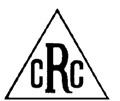| UNITED STATES and CANADA |
| California |
| Igud Hakashrus of Los Angeles
(Kehillah Kosher) | Rabbi Avraham Teichman
323-935-8383 | 186 North Citrus Ave.,
Los Angeles, CA 90036
|
 | Vaad Hakashrus of Northern California | Rabbi Levy Zirkind
510-843-8223 | 2520 Warring St.
Berkeley, CA 94704 |
| Rabbinical Council of California (RCC)
| Rabbi Nissim Davidi
213-389-3382 | 3870 Wilshire Blvd. #420
Los Angeles, CA 90010
|
| Colorado |
| Scroll K
Vaad Hakashrus of Denver | Rabbi Moshe Heisler
303-595-9349 | 1350 Vrain St.
Denver, CO 80204
|
| District of Columbia |
| Vaad HaRabanim of Greater Washington |
Rabbi Kalman Winter
301-593-0336
| 11161 New Hampshire Ave.
Suite #402
Silver Spring, MD 20904 |
| Florida |
| Kosher Miami
Vaad HaKashrus of Miami-Dade | Rabbi Mordechai Fried
Rabbi Manish Spitz
786-390-6620
| PO Box 403225
Miami, FL 33140
|
| Florida K
and Florida Kashrus Services | Rabbi Sholom B. Dubov
407-644-2500 | 708 Lake Howell Rd
Maitland, FL 32751
|
| Orthodox Rabbinical Board of Browand and Palm Beach Counties
(ORB) | Rabbi Pesach Weitz
305-206-1524 | PO Box 640326
Miami, FL 33164
|
| Georgia |
| Atlanta Kashrus Commission | Rabbi Reuven Stein
404-634-4063 | 1855 La Vista Rd. N.E.
Atlanta, GA 30329
|
| Illinois |
| Chicago Rabbinical Council
(cRc) | Rabbi Sholem Fishbane
www.crcweb.org
773-465-3900 | 2701 W. Howard
Chicago, IL 60645
|
| Midwest Kosher | Rabbi Yehoshua H. Eichenstein
Rabbi Chaim Tzvi Goldzweig
773-761-4878 | 2857 W. Pratt
Chicago, IL 60645 |
| Indiana |
| Indianapolis Orthodox Board of Kashrus | Rabbi Yisrael Gettinger
317-253-5253 | 6510 Hoover Rd
Indianapolis, IN 46260 |
| Indianapolis Beth Din
| Rabbi Abraham Grossbaum
317-251-5573 | 1037 Golf Lane
Indianapolis, IN 46260
|
| Iowa |
| Iowa “Chai-K” Kosher Supervision | Rabbi Yossi Jacobson
515-277-1718 | 943 Cummins Pkwy
Des Moines, IA 50312
|
|
| Kansas |
| Vaad Hakashruth of Kansas City | Rabbi Daniel Rockoff
913-649-4300 | P.O. Box 12542
Overland Park, KS 66282 |
| Back to Top |
| Kentucky |
| Louisville Vaad Hakashrut | Rabbi Avrohom Litvin
502-459-1770 | PO Box 5362
Louisville, KY 40205 |
| Louisiana |
| Louisiana Kashrut Committee | Rabbi Yossie Nemes
504-957-4986 | 4141 W Esplanade Ave
Metairie, LA 70002 |
| Maryland |
| Star-K Kosher Certification
(chalav Yisrael)
| Dr. Avram Pollack
410-484-4110 | 122 Slade Ave. #300
Baltimore, MD 21208
|
| Star-D Certification
(non-chalav Yisrael) | Dr. Avram Pollack
410-484-4110 | 122 Slade Ave. #300
Baltimore, MD 21208
|
| Massachusetts |
| Diamond -K | Rabbi Rachmiel Liberman
617-469-5000 | 100 Woodcliff Road
Chestnut Hill, MA, USA 02467 |
| New England Kashrus LeMehadrin | Rabbi Aaron Hamaoui
617-789-4343 | 75 Wallingford
Brighton, MA 02135 |
| Michigan |
| Council of Orthodox Rabbis of Greater Detroit
| Rabbi Doniel Neustadt
248-559-5005 x101 | 18877 West 10 Mile Rd, Suite 101 Southfield, MI
|
| Minnesota |
| United Mehadrin Kosher (UMK)
Note: unless the meat states that it is glatt, it is certified not-glatt by the UMK. The cRc only accepts Glatt Kosher meats. | Rabbi Asher Zeilingold
651-690-2137 | 1001 Prior Ave. South
St. Paul, MN 55116
|
| Missouri |
| Vaad Hoeir of Saint Louis | Rabbi Zvi Zuravin
314-569-2770 | 4 Millstone Campus
St. Louis, MO 63146
|
| New Jersey |
| Badatz Mehadrin -USA | 732-363-7979 | 1140 Forest Ave.
Lakewood, NJ 08701 |
| Rabbi Shlomo Gissinger
"CHES K" | 732-364-8723 | 170 Sunset Rd.
Lakewood, NJ 08701 |
| Kashrus Council of Lakewood N.J. | Rabbi Avrohom Weisner
732- 901-1888 | 750 Forest Ave.
Suite #66
Lakewood, NJ 08701
|
| Kof-K Kosher Supervision | Rabbi Zecharia Senter
201-837-0500 | 201 The Plaza
Teaneck, NJ 07666
|
| Rabbinical Council of Bergen County | Rabbi Binyomin Taub
201-287-9292 | PO Box 1233
Teaneck, NJ 07666 |
| New York-Bronx |
|
|
|
| Rabbi Zevulun Charlop | 718-365-6810 | 100 E. Mosholu Parkway South
Bronx, NY 10458 |
| New York - Brooklyn |
| Rabbi Yechiel Babad
(Tartikover Rav) | 718-951-0952/3 | 5207 19th Ave.
Brooklyn, NY 11204
|
| Central Rabbinical Congress
(Hisachdus HaRabanim) | Rabbi Yitzchak Glick
718-384-6765 | 85 Division Ave.
Brooklyn, NY 11211
|
| Rabbi Yisroel Gornish | 718-376-3755 | 1421 Avenue O
Brooklyn, NY 11230 |
| Rabbi Nussen Naftoli Horowitz |
718-234-9514 | 1712 57th St.
Brooklyn, NY 11204
|
| Kehilah Kashrus
(Flatbush Community Kashrus Organization) | Rabbi Zechariah Adler
718-951-0481 | 1294 E. 8th St.
Brooklyn, NY 11230
|
| The Organized Kashrus Laboratories (OK) | Rabbi Don Yoel Levy
718-756-7500 | 391 Troy Ave.
Brooklyn, NY 11213
|
| Rabbi Avraham Kleinman
( Margaretten Rav) | 718-851-0848 | 1324 54th St.
Brooklyn, NY 11219 |
| Rabbi Shlomo Stern
( Debraciner Rav) | 718-853–9623 | 1641 56th St.
Brooklyn, NY 11204
|
| Rabbi Aaron Teitelbaum
(Nirbater Rav) | 718-851-1221 | 1617 46th St.,
Brooklyn, NY 11204 |
| Rabbi Nuchem Efraim Teitelbaum
(Volver Rav)
| 718-436-4685 | 5808 11th Ave.
Brooklyn, NY 11225
|
| Bais Din of Crown Heights
Vaad HaKashrus
| Rabbi Yossi Brook
718-604-2500 | 388 Kingston Ave
Brooklyn, NY 11225
|
| Vaad Hakashrus Mishmeres L'Mishmeres | Rabbi Yitzchok Zeide
718-680-0642 | 1157 42nd. St.
Brooklyn, NY 11219 |
| Kehal Machzikei Hadas of Belz | 718-854-3711 | 1435 51st St
Brooklyn, NY 11219 |
| Vaad Harabanim of Flatbush
| Rabbi Meir Goldberg
718-951-8585 | 1575 Coney Island Ave.
Brooklyn, NY 11230
|
| New York - Manhattan |
| K’hal Adas Jeshurun
(Breuer’s) | Rabbi Moshe Zvi Edelstein
212-923-3582 | 85-93 Bennett Ave
New York, NY 10033 |
| Orthodox Jewish Congregations (OU) | Rabbi Menachem Genack
212-563-4000 | 11 Broadway
New York, NY 10004 |
| New York-Queens |
| Vaad HaRabonim of Queens | Rabbi Chaim Schwartz
718-520-9060 | 141-49 73rd Ave
Flushing, NY 11367 |
| New York-Long Island |
| Vaad Harabanim of the Five Towns and Far Rockaway
| Rabbi Yosef Eisen
516-569-4536 | 597A Willow Ave.
Cedarhurst, NY 11516
|
| New York-Upstate |
| Vaad HaKashrus of Buffalo
| Rabbi Moshe Taub
716-634-3990 | 3940 Harlem Rd.
Amherst, NY 14226
|
| Rabbi Mordechai Ungar | 845-354-6632 | 18 N. Roosevelt Ave.
New Square, NY 10977 |
| Vaad Hakashrus of Mechon L’Hoyroa | Rabbi Y. Tauber
845-425-9565 ext. 101 | 168 Maple Ave.
Monsey, NY 10952
|
| Rabbi Avraham Zvi Glick
| 845-425-3178 | 34 Brewer Road
Monsey, NY 10952 |
| Rabbi Yitzchok Lebovitz
| 845-434-3060 | P.O. Box 939
Woodridge, NY 12789
|
| New Square Kashrus Council
| Rabbi C.M. Wagshall
845-354-5120 | 8 Truman Ave
Suite #2
New Square, NY 10977
|
| Vaad Hakashruth of the Capital District | Rabbi Dr. Moshe Bomzer
518-489-1530 | 877 Madison Ave.
Albany, NY 12208 |
| Rabbi Menachem Meir Weissmandel
| 845-352-1807 | 1 Park Lane
Monsey, NY 10952
|
| Ohio |
| Cleveland Kosher
| Rabbi Shimon Gutman
440-347-0264 | P.O. Box 181476
Cleveland Heights, OH 44118
|
| Pennsylvania |
| Community Kashrus of Greater Philadelphia | Rabbi Dov Brisman
215-871-5000 | 7505 Brookhaven
Philadelphia, PA 19151 |
| Texas |
| The Houston Kashruth Association | Rabbi Yehoshua Wender
713-398-0267 | P.O. Box 35225
Houston, TX 77235 |
| Texas-K
Chicago Rabbinical Council (cRc)
| Rabbi Sholem Fishbane
773-465-3900 | 2701 W. Howard
Chicago, IL 60645
|
| Dallas Kosher
| Rabbi Sholey Klein
214-739-6535 | 7800 Northaven Rd.
Dallas, TX 75230
|
| Virginia |
| Vaad Hakashrus of Tidewater | Rabbi Sholom Mostofsky
757-627-7358 | 420 Spotswood
Norfolk, VA 23517 |
| Wisconsin |
| Kosher Supervisors of Wisconsin
| Rabbi Benzion Twerski
414-442-5730 | 3100 North 52nd St.
Milwaukee, WI 53216
|
| CANADA |
| Kashrus Council of Canada
(COR)
| Rabbi Sholom Adler
416-635-9550 | 3200 Dufferin St
Toronto, Ontario M6A 3B2
|
| Montreal Vaad Hair
(MK) | Rabbi Saul Emanuel
514-739-6363 | 6825 Decarie Blvd.
Montreal, Quebec H3W3E4
|
| Rabbinical Council of British Columbia
| Rabbi Avraham Feigelstak
604-731-1803 | 401-1037 W Broadway
Vancouver, B.C. V6H 1E3
|
|
| Back to Top |
| INTERNATIONAL |
|
| ARGENTINA |
| Achdus Yisroel
| Rabbi Daniel Oppenheimer
5411-4783-2831
or 4784-6719 | Moldes 2449
Buenos Aires 1428
|
| Rabbi Yosef Feiglestock
| 54114-961-9613 | Ecuador 821
Buenos Aires Capital 1214
Argentina |
| BELGIUM |
| Machsike Hadass
| Rabbi Eliyahu Shternbuch
323-233-5567 | Jacob Jacobstraat 22
Antwerp 2018 |
| BRAZIL |
| Communidade Ortodoxa Israelita Kehillas Hachareidim Departmento de Kashrus | Rabbi A.M. Iliovits
5511-3082-1562 | Rua Haddock Lobo 1091,
S. Paulo-SP, 01414-003
|
| CHINA |
| HKK Kosher Certification Service | Rabbi D. Zadok
852-2540-8661 | 18 Floor, V. Heun Building
138 Queen's Road
Central, Hong Kong
|
| ENGLAND |
|
The Joint Kashrus Committee of England
| Mr. Yitzchok Feldman
44208-802-6226 | 140 Stamford Hill
London N16 6QT
|
| Machzikei Hadas Manchester
| Rabbi M.M. Schneebalg
44161-792-1313 | 17 Northumberland St.
Salford M7 4RP |
| Gateshead Kashrus Authority
| Rabbi Elazer Lieberman
44191-477-1598 | 37 Grasmere Street West
Gateshead-Tyne & Wear NE8 1TS
|
| FRANCE |
|
|
|
| Rabbi Mordechai Rottenberg
(Chief Orthodox Rav of Paris) | 3314-887-4903 | 10 Rue Pavee
Paris 75004
|
| Adas Yereim of Paris
| Rabbi Y.D. Frankfurter
3314-246-3647 | 35 Rue Miguel Hidalgo
Paris 75019
|
| Kehal Yeraim of Paris
| Rabbi I Katz
33-153-012644 | 13 Rue Pave
Paris 75004 |
|
















































